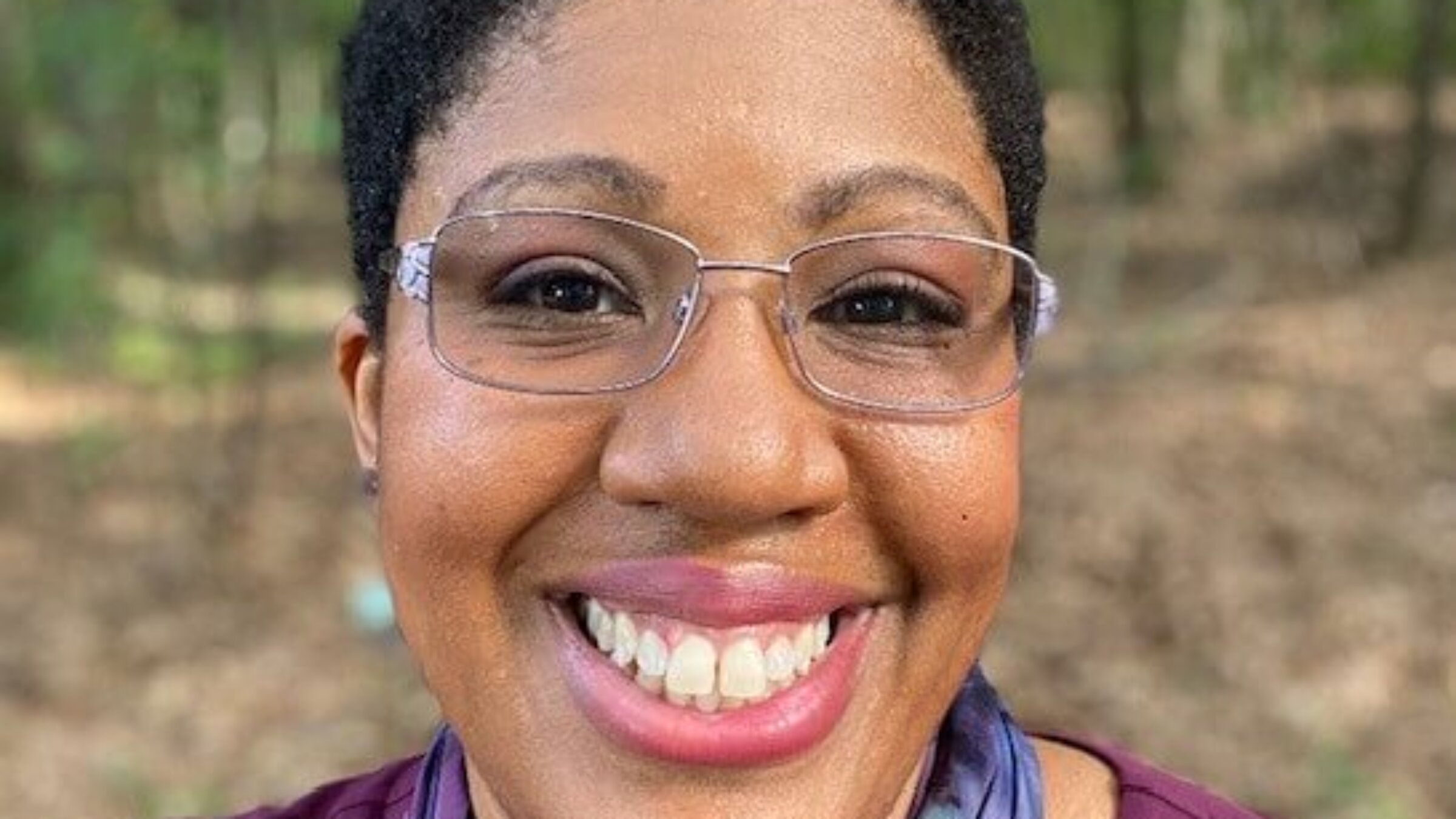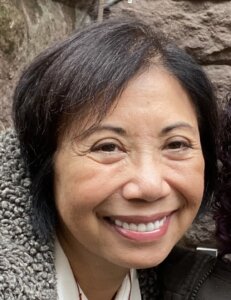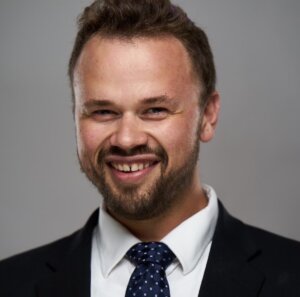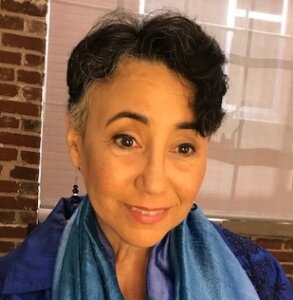More rabbis of color are being ordained. Why aren’t they on the bimah?
Virtually no Black rabbis lead mainstream Jewish congregations

Tiferet Berenbaum is the rabbi of congregational learning and programming at Temple Beth Zion, an independent Jewish congregation in Brookline, Massachusetts. Courtesy of Tiferet Berenbaum
After graduating from Reconstructionist Rabbinical College in 2018 as a prominent openly gay, female and Black rabbi, Sandra Lawson said she applied for two positions that suited her skill set.
Both congregations needed a “young-ish, hungry, entrepreneurial rabbi,” she said. But she didn’t get either job.
“In both cases, I was told ‘Our congregation is not ready for a Black rabbi,’” said Lawson, who in 2021 went on to become Reconstructing Judaism’s first director of Racial Diversity, Equity and Inclusion.
“At one synagogue when my name was brought forward to be the rabbi, people got angry and hostile and somebody said they would rather start the process all over again than hire me,” Lawson said. At the other, she said, congregants threatened to quit or withhold their money if she were chosen to lead.
Lawson’s experience is not an anomaly. Despite a growing population of Jews of color in the United States and an increase in their entering the rabbinate, very few serve as rabbis leading services at established congregations. And when it comes to Black rabbis in particular, that number is almost non-existent.

“All of us dream about having communities that reflect us in the deepest ways. One of the ways we get reflected is who’s at the bimah,” said Graie Hagans, senior adviser at Bend the Arc Jewish Action and a founder of the Black Jewish Liberation Collective and board member of Jews in All Hues.
While there is no widely publicized count of rabbinical students of color, news articles about individuals who have been ordained in recent years indicate their numbers have grown. Yet Hagans expressed his concern that other than Rabbi Capers Funnye, who leads the 200-member largely Black Beth Shalom B’nai Zaken Ethiopian Hebrew Congregation in Chicago that identifies both as Jewish and Hebrew Israelite, “Jews of color can’t walk into mainstream synagogues and see someone who looks like us as the rabbi of the congregation.”
Lawson has also voiced that concern. In November 2022 she tweeted: “Keep in mind there are currently no Black rabbis ordained by the top non-Orthodox rabbinical programs serving as ‘rabbi’ of a congregation. This statement does not include rabbi educator positions. If I am wrong please let me know.”
Before Lawson’s experiences, in 2009, Alysa Stanton received widespread attention as the first female Reform African American rabbi. She earned a master’s degree in Hebrew letters from Hebrew Union College-Jewish Institute of Religion in Cincinnati.
After her ordination, Stanton served as spiritual leader at the predominantly white Congregation Bayt Shalom in Greenville, North Carolina, which is affiliated with both the Conservative and Reform movements. Her contract was not renewed, and she left in 2011.
In a Forward article about her dismissal, Stanton said the challenges she faced weren’t all that different from those of any other first-year rabbi, but “were more visible because the world was watching.
“I’m not a novelty or a freak show,” she said. “I’m a rabbi.”
Bayt Shalom’s then-president, Samantha Pilot, told the Forward the congregation’s leadership felt she wasn’t a good fit for the direction the shul was going and that the decision did not have to do with race.
“I can tell you with certainty that race — I never heard that come up once during her tenure or now,” Pilot said. “It’s a non-issue.”
Stanton could not be reached for this article but is not known to have served another congregation.
Black rabbis in pulpit positions
A Black woman rabbi whose current position occasionally does include leading services is Tiferet Berenbaum. Since 2019, she has been the rabbi of congregational learning and programming at Temple Beth Zion, an independent Jewish congregation in Brookline, Massachusetts. She also held pulpit positions in Milwaukee, Wisconsin, and Mt. Holly, New Jersey, after receiving rabbinic ordination and a master’s in Jewish education from Hebrew College in 2013.
“Sometimes I lead services, but most of the time I don’t,” said Berenbaum. “It was my choice because I am very passionate about education, which is often on the back burner at synagogues.”
She oversees TBZ’s after-school learning program, Beit Rabban, teaching the teachers. “I get a lot of pride and satisfaction in getting teachers who will be teaching our increasingly diverse Jewish students, and creating a kind of sounding board for that discovery,” Berenbaum said.
She didn’t expect her identity to be such a focus when studying to be a rabbi. “In the summer of 2020, people were reaching out and I was commenting a lot on race and Black Lives Matter. And I realized that my rabbinate had become a BLM rabbinate, and that is not what I signed up for,” Berenbaum explained.
“My passion is Judaism and how we live our lives Jewishly. Right now race is a huge part of American culture and Judaism has to have something to say. I’ve accepted that it’s a manifestation of Judaism in 21st-century America.”
Another Black woman who has served as a pulpit rabbi is Georgette Kennebrae. After graduating from the Reconstructionist Rabbinical College in 2017, she served as rabbi of West End Synagogue in Manhattan, and then as the spiritual leader of Mikvé Israel-Emanuel in the Caribbean island country of Curaçao, which describes itself as the oldest continuously running synagogue in the Western Hemisphere. According to its website, she recently left that position.
Other rabbis of color
Likely the most prominent rabbi of color is Angela Warnick Buchdahl, senior rabbi of New York’s Central Synagogue. Born in Korea to a Jewish American father and a Korean Buddhist mother, she was ordained as a rabbi in 2001 by the Hebrew Union College-Jewish Institute of Religion. She initially joined the Reform Congregation as senior cantor in 2006 after previously serving as associate rabbi/cantor at Westchester Reform Temple in Scarsdale, New York.
Buchdahl is “‘The superstar rabbi’ who fought for her position,” says Rabbi Mira Rivera, who is the first Filipina-American to be ordained at The Jewish Theological Seminary, adding: “It was hard won.”

Rivera is rabbi-in-residence for both The LUNAR Collective, an organization by and for Asian American Jews, and the JCC Harlem. Calling rabbis of color who have led pulpits the exception and not the rule.
“To be honest, if we are going to be the leader of the pulpit, we have to start the congregation, plain and simple,” she said. “If you want control, you have to start your own organization.”
So if more rabbis of color have graduated rabbinical schools or received Smicha through other means of study but are not leading congregations, where are they?
Administrators with spiritual duties
Like Lawson, some are popping up in administrative roles for Jewish institutions, occasionally with liturgical duties.
Rabbi Isaiah Rothstein is rabbinic scholar and public affairs adviser at the Jewish Federations of North America and a creator of its Jewish Equity, Diversity, and Inclusion program.
“I have been offered pulpits but it was never the right fit and I like the flexibility of working for different programs and having a pulpit that’s nomadic,” said Rothstein, who is Black and received his ordination and masters of social work from Yeshiva University in New York.
“In terms of traditional models for rabbinic ordination,” Rothstein said, there are “maybe two dozen rabbis of color working in synagogue spaces. With that said, many incredible spiritual leaders are opting out of rabbinical school and choosing a different path,” he said.

“In the 21st century, the definition of the Jewish pulpit is expansive and slightly fluid in that there are many rabbis who are also Jews of color that have their own pulpits and see their leadership as a pulpit.”
As for why, he posits: “Is it implicit biases? Is it structures that don’t enable people to feel retained, to feel that those environments aren’t inclusive? Those are the things we’re looking at in relation to our work.”
The Jewish Theological Seminary in New York acknowledges the problem.
“We know we’re living in a time when there aren’t enough role models for rabbis of color,” said Ayelet Cohen, Pearl Resnick Dean of The Rabbinical School at the JTS.
“This was true for LGBTQIA rabbis a decade ago, and it was true for women rabbis a generation ago. We know that we need to make up a huge deficit in terms of representation and in terms of helping people be able to imagine themselves in these roles and know that they belong there.”
Cohen’s colleague Stephanie Ruskay, associate dean of the JTS Rabbinical School, adds that, “We are actively recruiting Jews of color to be rabbis because we think rabbis need to represent that in the Jewish world. It’s not nearly as fast as we’d like it to be but the conversation and work are ongoing.”
Working toward solutions
The pipeline of rabbis of color toward roles other than congregational spiritual leadership feeds Hagan’s concern about the lack of role models for “all these Black Jews and rabbinical students who want to take on that role and lead in community.
“As the demographics of Americans and American Jews are changing, then our institutions should be figuring out how to reflect that,” he said.
Rivera echoed that, saying it’s a “big deal” to have a rabbi who looks like you “because the face of Jewish life and leadership has always looked one way. And it makes a difference to have another face up there bringing to life the word of Torah and the wisdom and inherent difficulties of wrestling with those difficulties.”
Lawson said her job is all about creating change — even uncomfortable change.
“One reason I helped create this job at Reconstructing Judaism was to do my part to help congregations recognize racism in their communities and help them deal with it,” she said. “If you say, ‘We’re not ready for a Black rabbi,’ and in the same breath say you’re not racist, obviously there’s a huge disconnect. As more Jews of color apply for pulpit positions, they should be hired based on talent without race being a factor.”
A message from our Publisher & CEO Rachel Fishman Feddersen

I hope you appreciated this article. Before you go, I’d like to ask you to please support the Forward’s award-winning, nonprofit journalism so that we can be prepared for whatever news 2025 brings.
At a time when other newsrooms are closing or cutting back, the Forward has removed its paywall and invested additional resources to report on the ground from Israel and around the U.S. on the impact of the war, rising antisemitism and polarized discourse.
Readers like you make it all possible. Support our work by becoming a Forward Member and connect with our journalism and your community.
— Rachel Fishman Feddersen, Publisher and CEO






























